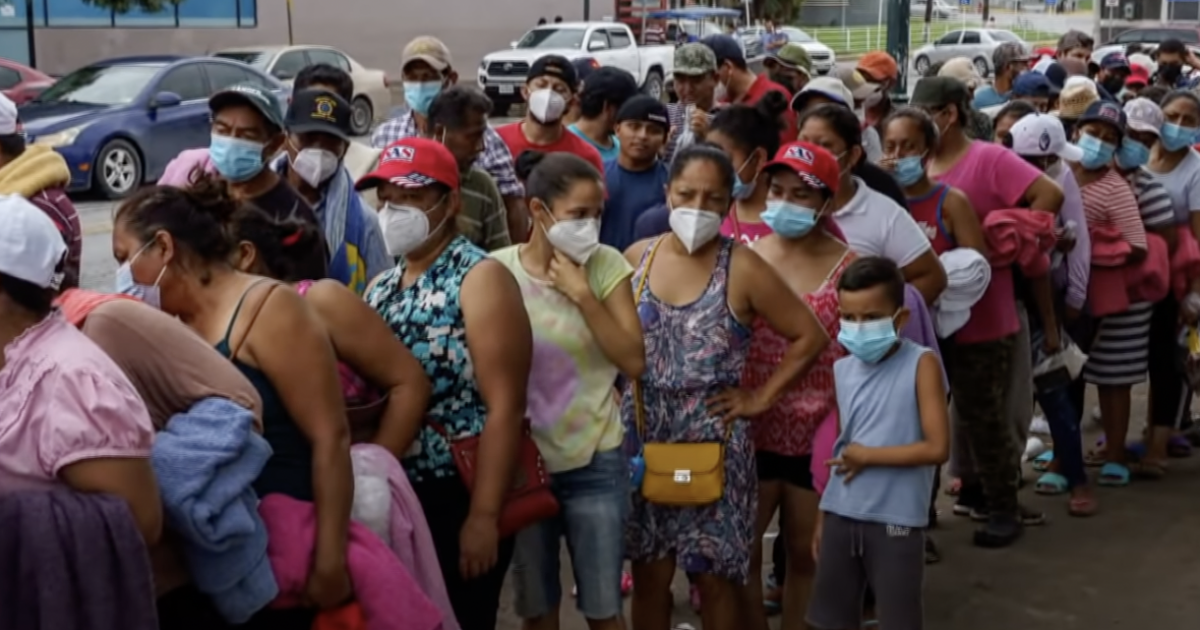
Not everything is bad news these days. August 13, 2021, Judge Matthew Kacksmaryk issued an order which banned the Biden administration’s termination of the Migrant Protection Protocols (MPP). MPP is colloquially known as “Remain in Mexico.” Although the court did not order any DHS officer to deport any illegal alien to Mexico, it explicitly stated that the administration could only do the following: “Detain illegal migrants, remove or expel them, or send them back across the border.”
The court did concede, however, it does not have the power to compel any DHS officer to deport any illegal alien to Mexico.
Andrew R. Arthur of the Center of Immigration Studies noted that “MPP was implemented in January 2019 and allowed DHS to return non-Mexican migrants caught entering illegally or without proper documentation back to Mexico to await removal hearings.” These non-Mexican migrants were subsequently paroled into the United States for enough time to fill out applications for asylum, while the Mexican government promised to provide the asylum seekers with protection for the time they stayed in Mexico.
The Trump administration enacted “Remain in Mexico’ as a response to what the previous Trump administration deemed “a security and humanitarian crisis on the Southern border.”
Arthur explained how there are loopholes in the current asylum process that migrants seek to exploit:
Specifically, according to the then-DHS, loopholes in the law I have discussed at length in the past encourage migrants — largely from the Northern Triangle of Central America countries of El Salvador, Guatemala, and Honduras — to enter the United States illegally with weak and/or fraudulent asylum claims, in the expectation that they can remain indefinitely.
The primary loopholes are: (1) incentives for unaccompanied alien children from non-contiguous countries to enter illegally in the 2008 Trafficking Victims Protection Reauthorization Act (TVPRA); (2) a 20-day release requirement for children and adults traveling in “family units” (FMUs) manufactured by a different district court judge in her 2015 decision in Flores v. Lynch; and (3) an unreasonably low burden of proof for aliens apprehended at the border to claim a fear of persecution.
Back in January 2019, DHS admitted that these loopholes weakened border security. 90% of asylum claims submitted by nations of Northern Triangle countries were rejected. However, 99% of nationals from Northern Triangle countries who were caught in FY 2017 stayed in the country. These cases overloaded the immigration court system, thereby making it more difficult for migrants who have real persecution claims to obtain asylum.
MPP addressed this matter by removing the magnet for Northern Triangle migrants which generally allowed them to stay in the US indefinitely as their asylum cases were being processed.
Arthur explained one significant aspect of Kacsmaryk’s decision that deals with the detention of migrants:
Crucial to Judge Kacsmaryk’s decision was a point that I made in June, when DHS Secretary Alejandro Mayorkas terminated MPP: The law requires those aliens to be detained if they are not sent back to Mexico.
Under section 235(b) of the Immigration and Nationality Act (INA), when DHS apprehends aliens entering illegally or without proper documents, it can either place them into expedited removal proceedings (under which they can be quickly removed if they do not claim a fear of harm) or place them into removal proceedings before an immigration judge.
Regardless of which tack DHS opts to take, however, section 235(b) of the INA requires the department to detain those aliens until they are granted asylum or other relief or are removed. That ensures that aliens cannot enter the United States illegally and expect to remain here free of constraint while making an asylum claim, meritorious or not.
Judge Kacsmaryk did point out that MPP was initially implemented by the US government per American law, and subsequently enacted after discussions with the Mexican government. So even if Mexico rejected taking back aliens who entered the country illegally, the US government could still stop admitting aliens who wind up at the ports and petitioned for asylum, Mexico has to take them back.
Arthur noted that days of “‘catch, release, and disperse into the interior of the United States’” are likely over should Judge Kacsmaryk’s order stay in place.
This is welcome news. However, MPP will not be enough to contain the mass migration scourge. This will require the enactment of an immigration moratorium, tougher border security, putting military assets on the border, and a complete overhaul of American immigration policy.
Marginal victories should always be welcome, but we should never lose sight of the overall goal of immigration restriction. Liberty conservatives have their work cut out for it.



